|
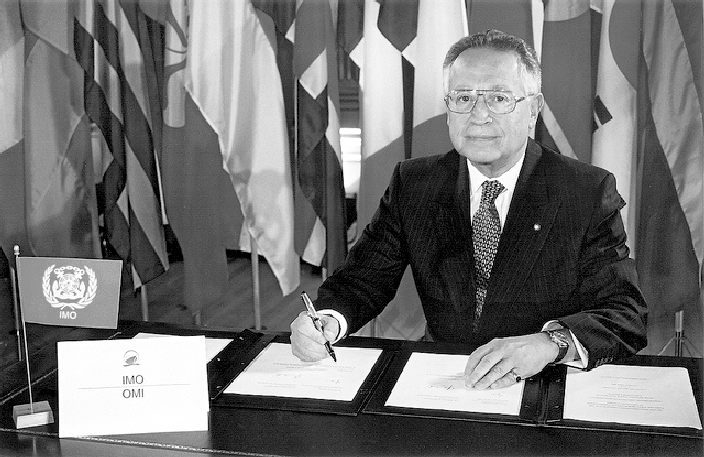
IMO
SEC. GENERAL - Efthymios E. Mitropoulos was the seventh Secretary-General of the International Maritime Organization (IMO), a United Nations agency. Mitropoulos was elected as Secretary-General on 18 June 2003 during the 19th session of the International Maritime Organization Council. His four-year term started on 1 January 2004, and then was extended until 31 December 2011 by the IMO Council on 9 November 2006. He was succeeded by Koji Sekimizu. Mitropoulos was an accomplished chief engineer officer, coast guard officer, rear admiral, shipping economist, marine technologist, harbor master, lecturer, chancellor, chairman, and author of books about shipping economics and policy, merchant vessels, and navigation safety, among other shipping-related subjects.
After studying at the Hellenic Coast Guard Academy in 1964, Mitropoulos practiced as a Coast Guard Officer in Corfu then in Piraeus, retiring as a Rear Admiral. He studied shipping economics in Italy in 1965, then marine technology in the United Kingdom in 1970. He started his career as a member of the Greek delegation in 1966. Among his achievement included the laying down of the foundation for establishing the Joint Maritime and Aeronautical Search and Rescue Centre of Greece. He was the harbor master of Corfu from 1977 to 1979.
He began his career at the International Maritime Organization in January 1979. He held positions such as Implementation Officer of the Maritime Safety Division (1979), Head of the Navigation Section (1985), Senior Deputy Director for Navigation and Related Matters (1989), Director of the Maritime Safety Division (1992), Secretary of the Maritime Safety Committee (1992), Assistant Secretary-General (2000), and as Secretary-General beginning 2004. His first tenure was from 2004 to 2008. His second term began in 2008 and was completed in December 2011. He also acted as Chancellor of the World Maritime University in Sweden (2004) and as Governing Board Chairman of the International Maritime Law Institute in Malta (2004). Mitropoulos currently serves as Patron of the ITF Seafarers' Trust.
The city of Gdańsk in the Pomerania region of Poland
was chosen as a location for the 2011 European Maritime Day Conference. The event
was held from 19 to 20 May at the premises of the Baltic Philharmonic Orchestra. The conference is being co-organised by the Directorate-General for Maritime Affairs and Fisheries, Ministry of Infrastructure of Poland, authorities of the Pomerania Region, and the city of Gdańsk.
The
programme focused on jobs and training in the maritime sectors and on the maritime sectors' potential to trigger the
economic growth in the coastal regions.
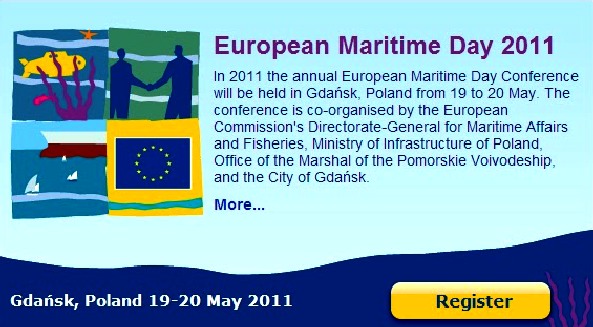
ADDRESS
BY E. MITROPOULOS - SECRETARY-GENERAL IMO -
19 MAY 2011
“Maritime policy: putting people first”
Ministers, Excellencies, Commissioners, distinguished guests, ladies and gentlemen,
I am extremely pleased to come back to Poland to participate in today’s events and for the opportunity to address you – and I thank the organizers for both. I am delighted to share in your celebrations of
European Maritime Day – the fourth time European Union members do so. Needless for me to add here that Europe and others do extremely well every time they copy IMO’s
institutions!.
If one looks back far enough into history, the sea was once a largely unregulated space, a place in which explorers and warriors, traders and carriers, honest men and thieves (also knows as “pirates”) could all be found. And you could argue that, today, little has changed in that respect.
In the 17th century, Hugo Grotius’s seminal treatise Mare Liberum set out to establish formally the principle that the sea should be free for all. That principle in reality began, in earnest, the process of bringing the seas within a framework of control and regulation – a process that has continued, unabated, to the present day.
I am not suggesting that that is a bad thing. On the contrary, I am glad to say we have come a long way since the time when the distance you could fire a cannon from shore dictated the extent of a country’s maritime domain. This may have been a practical solution at the time, but it was a little crude by today’s standards. In the modern era, the
United Nations Convention on the Law of the Sea, universally known as
UNCLOS, does an excellent job in defining the rights and responsibilities of nations in their use of the world's seas and oceans.
And so the governance of sea today is indisputably and undoubtedly under the purview of policy makers. In their hands lies the responsibility for the exploitation, the usage, the care and the maintenance of a natural asset on which mankind literally depends.
Which brings me neatly to the theme of your conference today – Maritime Policy: Putting People First. On the face of it, that seems a perfectly reasonable and uncontentious proposition – motherhood and apple pie, as our friends from across the Atlantic would put it. In as much as any policy should be designed to improve the lot of “people”, so maritime policy should, of course, put “people” first.
But after that, it starts to get rather more difficult and complicated. Delve a little deeper and questions begin to emerge. Are we talking long-term, medium-term or short-term policy? And to which “people” do we refer? Who takes precedence when interests conflict and priorities collide? And who decides?
Before we go any further, let me surround these questions with some context. The facts and figures I am going to mention all come from the EU’s own website, so I presume they must be true!
In terms of volume, 90 per cent of trade between Europe and the rest of the world is carried by sea. Among EU Member States, short-sea shipping is a key element in reducing congestion, ensuring territorial cohesion and promoting sustainable development throughout the continent. Passenger ships and ferry services have a direct impact on the quality of life of citizens in islands and peripheral regions, as shown by the more than 400 million passengers that travel through European ports each year.
Shipping represents one of Europe's largest export industries. Europe plays a major role in today’s shipping world – not least in the shaping of IMO’s objectives and policies. European owners and companies own more than 40 per cent of the world’s total fleet by deadweight tonnage, while, in Europe today, 1.5 million people find employment in maritime transport and related activities – and some 70 per cent of shipping-related jobs are onshore, in areas such as shipbuilding, naval architecture, science, engineering, electronics, marine equipment manufacturing, cargo-handling and logistics.
Of course, all this activity comes with a price. The marine environment is not as robust as we once thought it was. The sea is a delicate and fragile ecosystem that needs to be cherished and protected. A healthy marine environment is ecologically diverse and productive and, clearly, whilst the sea provides the means for mass transportation of goods all over the planet, maritime activities must be kept at a sustainable level – a level that safeguards the potential uses and activities of both current and future generations.
What becomes clear is that, while “putting people first” should, arguably, underlie all maritime policy, there is a great deal of devil in the detail. In their efforts to reach balanced decisions, policy makers need to weigh a series of equally valid concerns, such as the protection of the marine environment, the preservation of fish stocks, the economy, safety, immigration issues, security from terrorist threats, the scourge of modern-day piracy, the transport of goods and people, geo-political matters and so on.
By the same token, they must recognize that the interests of diverse groups of people may be different, even conflicting: fishermen; those who make their living from shipping and related maritime activities; those who live in coastal zones; refugees and migrants using the sea to escape danger and find better lives for themselves; recreational and social users – and seafarers, of course, whose interests are close to my heart yet all-too-often overlooked – all of these, and more, have a legitimate voice and a right to be heard.
These are the considerations with which maritime policy makers must juggle as they seek balanced solutions to the challenges they face.
Of course, none of this will be news within the corridors of the EU, where the Integrated Maritime Policy was elaborated back in 2007. Designed to enable the Commission, Member States and maritime stakeholders to work towards the sustainable use of oceans, seas and coasts, it advocates an integrated approach to the management and governance of those areas and fosters interaction between all sea-related policies in the EU.
What it clearly recognizes is that that there is a maritime dimension to virtually every major issue facing Europe today, including energy, climate change, environmental protection and conservation, research and
innovation, competitiveness and job creation, international trade, transport and logistics.
And, what is more, it clearly reflects the inescapable truth that the world’s oceans and seas are interlinked, and action in one sea, or one policy area with an impact on the sea, may have positive or negative, intended or unintended, effects on other seas and policy areas. Moreover, the ever-more-intense use of the oceans and seas by sectors such as shipping,
energy, tourism or fisheries, combined with
climate change, have added to the pressure on the marine environment.
Ladies and gentlemen, let me now offer an example of how a people-focused policy can pay dividends in the maritime world. The 5-yearly BIMCO/ISF Manpower surveys, first conducted in 1990, are regarded as the most comprehensive assessment of the global supply of, and demand for, seafarers. In response to the serious seafarer shortfall predicted in the 2005 survey, IMO, together with ILO, ICS/ISF, BIMCO, INTERCARGO, INTERTANKO and ITF, launched, in November 2008, the “Go to Sea!” campaign to attract new entrants to the shipping industry. Our specific aim was to promote seafaring as an attractive career option, one that can provide rewarding, stimulating and long-term prospects.
The most recent BIMCO/ISF survey, published in 2010, has revealed a shortage of some 13,000 officers (2% of the total), which is predicted to rise to some 5% by 2015 and then moderate to 1% by 2020. Should, however, the world economy improve significantly in the coming years and the world fleet grow accordingly, then the supply/demand gap could reach as high as 11% by 2015, moderating to some 9% by 2020. Such revealing data and predictions should galvanize prompt action before we are overtaken by events. I am confident Europe will respond with a due sense of responsibility.
Here in Poland, of course, the maritime tradition is strong. Polish seafarers are respected all over the world and Poland’s maritime training system is one to be proud of. Indeed, it was my privilege last year to witness it at first hand when I undertook a trip on the famous sail training vessel Dar Mlodziezy – not only a beautiful and iconic ship but also a living and working educational establishment.
The countries of Europe, and others around the world, are now clearly recognizing the major contribution made by sea-based activities to their economies and to the well-being of their people. There is a manifest acknowledgement that sea-based activities are both an essential element of, and a challenge to, sustainable development, and their intensification poses a significant test. A comprehensive, coordinated approach, ensuring safety and security in maritime transportation and sustainable development of the different sea resources and activities is the Holy Grail of maritime policy; and if, within that context, “putting people first” achieves the desired results, then that has to be the way forward.
So, let me conclude by wishing you every success with this conference, and leave you with a few words from the Executive Summary to the Integrated Maritime Policy I mentioned before, which, I think, are particularly appropriate:
“The seas are Europe's lifeblood. Europe's maritime spaces and its coasts are central to its
well-being and prosperity – they are Europe's trade routes, climate regulator, sources of
food, energy and resources, and a favoured site for its citizens' residence and recreation.”
Ladies and gentlemen, I am sure those thoughts will be constantly in your minds today and tomorrow, when, I hope, you will discuss Europe’s contribution to IMO’s efforts to provide a comprehensive response to the scourge of modern-day piracy, including stronger political will and a higher rate of compliance with the preventive, evasive and defensive measures
IMO and the industry have put in place. We cannot afford to participate in any celebration without thinking of the more than 500 seafarers presently in the hands of pirates. Our thoughts and prayers are with them. Good luck with the conference, and happy European Maritime Day!
Thank you.
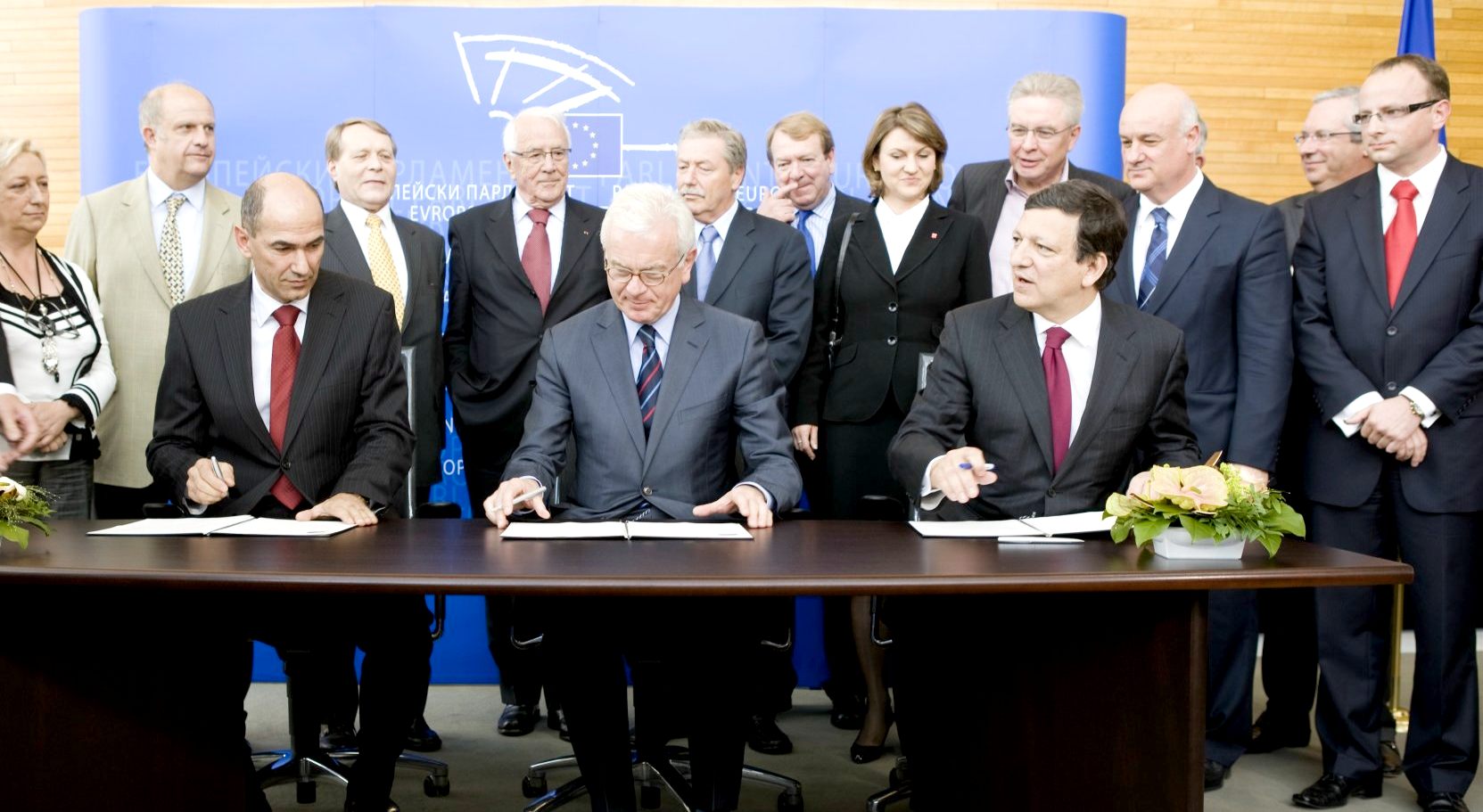
CREATION -
The European Maritime Day (EMD) was officially created on 20 May 2008
where the President of the European Parliament Hans-Gert Pöttering,
Council President Janez Janša, and Commission President José Manuel
Barroso signed a Joint Tripartite Declaration establishing it.
EMD
HEADLINE THEMES
*
Brussels 2008: "A regional approach to the implementation of Maritime
Policy"
*
Rome 2009: "Integrated Maritime Policy and the contribution of
maritime clusters"
*
Gijón 2010: "How to foster innovation?"
*
Gdansk 2011: "Maritime Policy: Putting People First"
*
Gothenburg 2012: "Sustainable Growth from the Oceans, Seas and
Coasts"
*
Valletta 2013: "Coastal Development and Sustainable Maritime
Tourism"
*
Bremen 2014: "Innovation driving Blue Growth"
*
Piraeus 2015: "Ports and Coasts, Gateways to Maritime Growth"
*
Turku 2016: "Investing in blue growth – smart and sustainable
solutions"
*
Poole 2017:
"The Future of our Seas"
*
Burgas 2018: Bulgaria "TBA" *
Lisbon 2019: Portugal "TBA"
*
Cork
2020: Ireland "TBA"
*
Den Helder 2021: The Netherlands "TBA" *
Ravenna 2022: Italy "TBA" *
Brest 2023: France "TBA" *
Svendborg 2024: Denmark "TBA"
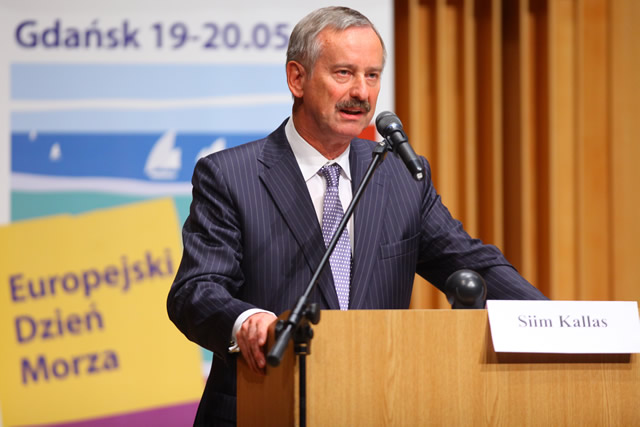
CONFERENCE
DETAILS
.....
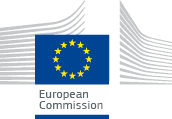
CONTACTS
Enterprise Europe Network South West
Business West, Leigh Court
Abbots Leigh, Bristol, BS8 3RA
LINKS
& REFERENCE
http://www.imo.org/en/MediaCentre/SecretaryGeneral/SpeechesByTheSecretaryGeneral/Pages/European-Maritime-Day.aspx https://en.wikipedia.org/wiki/Efthymios_Mitropoulos
http://ec.europa.eu/maritimeaffairs/maritimeday/en/home http://ec.europa.eu/maritimeaffairs/maritimeday/en http://ec.europa.eu/maritimeaffairs/maritimeday/en/about-emd http://ec.europa.eu/maritimeaffairs/maritimeday/en/poole-2017 http://ec.europa.eu/maritimeaffairs/maritimeday/en/exhibition
ACIDIFICATION
- ADRIATIC
- ARCTIC
- ATLANTIC
- BALTIC
- BAY
BENGAL - BERING
- CARIBBEAN
- CORAL
- EAST
CHINA SEA
ENGLISH
CH - GOC
- GULF
GUINEA - GULF
MEXICO - INDIAN
-
IOC
- IRC
- MEDITERRANEAN
- NORTH
SEA - PACIFIC
- PERSIAN
GULF - SEA
JAPAN - STH
CHINA - PLASTIC
- PLANKTON
- PLASTIC
OCEANS - SEA
LEVEL RISE - UNCLOS
- UNEP
WOC
- WWF
|



